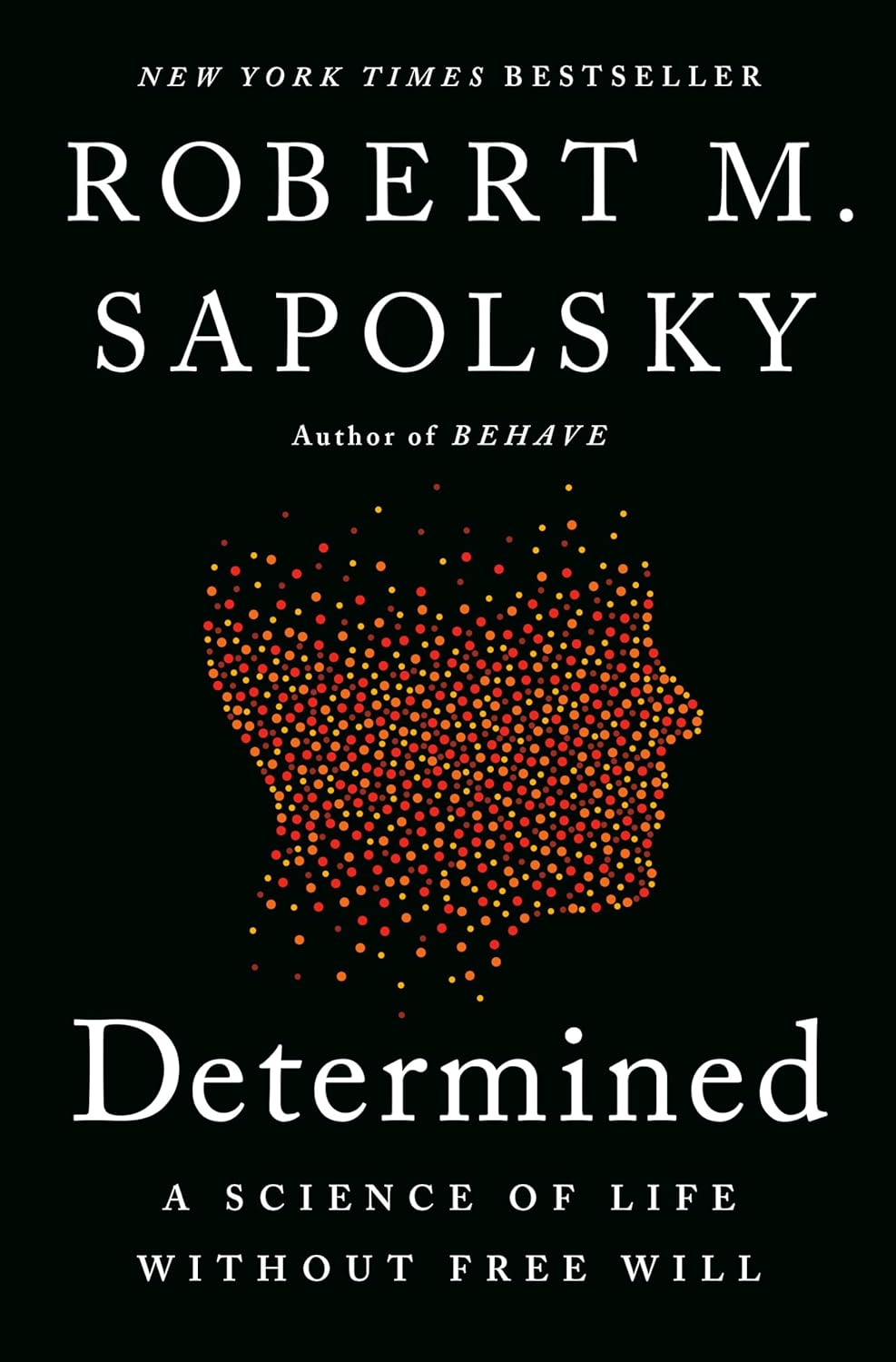Trying To Refute Free Will Without Being Sure What It Is…
Stephen Barr offers some thoughts on neuroscientist Robert Sapolsky’s Determined, which argues against free willIn this month’s First Things, physicist Stephen M. Barr looks at primatologist and Stanford professor of neurology, Robert M. Sapolsky’s book Determined: A Science of Life Without Free Will (Penguin 2023).

Barr, author of Modern Physics and Ancient Faith (Univ. of Notre Dame Press 2003), praises Sapolsky’s book as well written and informative on neuroscience.
But then he goes on to say,
The book suffers, however, from a grave defect: It tries to refute the reality of free will without a clear enough idea of what free will is, or at least what it traditionally was understood to be. Its text makes no mention of Aristotle, Aquinas, or the other great philosophers who shaped two millennia of thought on the subject.
Stephen M. Barr, “Feel Free,” First Things, August 2024
Sapolsky believes — as they did not — that every aspect of human thought and choice is determined by laws of physics. In particular, says Barr, he does not appear grasp the role of reason:
According to Aquinas, following Aristotle, what distinguishes the human will and makes it “free” is precisely that it is rational. By contrast, Aquinas writes, other animals use no such faculty: “The sheep, seeing the wolf, judges it a thing to be shunned, from a natural and not a free judgment, because it judges, not from reason, but from natural instinct.”
Barr, “Feel Free”
They (and Barr) don’t mean that non-rational factors play no role in human choices but rather that humans also have reason and other animals do not:
A crucial point is that human reason is open to general abstract truths, both speculative and moral. It could not be open to such truths, which lie above it, if it were under the complete control of factors below it, such as physical and chemical forces, sensations, emotions, and the like. We must be free in this way, or we could not be rational. The great twentieth-century mathematician Hermann Weyl noted that even in the realm of mathematics, “[there must be] freedom in the theoretical act of affirmation and negation. When I reason that 2 + 2 = 4, the judgment is not forced upon me by blind natural causality.” Of course, a machine that blindly follows some algorithm might do correct calculations, such as 2 + 2 = 4, but it does not recognize mathematical truth; rather, its programmer did. The machine could just as well be programmed to output 2 + 2 = 17 and be none the wiser. A machine cannot grasp the meaning of abstract propositions, let alone judge their truth.
Barr, “Feel Free”
To show that free will does not exist, Sapolsky focuses on arguments around neuroscience and physics. The problem is that neuroscience — despite the hopes of many physicalists — does not demonstrate that. And he is on dicey ground with physics too, says Barr, a physicist:
Many leading physicists and philosophers have expressed either doubts or denial that physical mechanisms can, even in principle, yield an explanation of consciousness—for example, the physicists Schrödinger, Wigner, Dyson, Linde, and Witten, and the philosophers Chalmers, Kripke, and Nagel, to name just a few of the most famous. And since consciousness is presumably a prerequisite for free will, we cannot hope to understand the latter without understanding the former.
Barr, “Feel Free”
Sapolsky apparently waves the question of consciousness away as “ridiculous” but that doesn’t make something so fundamental go away. In truth, the ongoing effort to explain away immaterial realities like the human mind results in many ungainly collapses, like this one:

Sapolsky does try to tackle the question of how we change our minds. But he gets no further than talking about how sea slugs change their behavior in response to having their tails shocked repeatedly and how rats change their behavior in response to Pavlovian training. Really? This is supposed to get us anywhere near to explaining the highest powers of the human mind?
Barr, “Feel Free”
Of course, a blizzard of factoids about such research leads us away from asking about higher powers that pose a challenge. And, in truth, many readers might like that. The ghost of moral responsibility is quieted, though not banished, by filling the air with data about unrelated questions.
Barr’s summary judgment comes in the form of a quotation from G. K. Chesterton (1874–1936):
One hundred and twenty years ago, G. K. Chesterton wrote an essay answering a materialist-determinist of his day named Robert Blatchford. As I read the final part of Sapolsky’s book, the end of Chesterton’s essay came to mind:
“Yes, there is a liberty that has never been chained. . . . It is the liberty of the mind, that is to say, it is the one liberty on which Mr. Blatchford makes war. That which all the tyrants have left, he would extinguish. That which no gaoler could ever deny to a prisoner, [he] would deny. More numerous than can be counted, in all the wars and persecutions of the world, men have looked out of their little grated windows and said, “at least my thoughts are free.” “No, No,” says the face of Mr. Blatchford, suddenly appearing at the window, “your thoughts are the inevitable result of heredity and environment. Your thoughts are as material as your dungeons. Your thoughts are as mechanical as the guillotine.” So pants this strange comforter, from cell to cell.”
Barr, “Feel Free”
You may also wish to read: My reply to free will deniers: Show me. It is helpful to consider the question in this way—not “do we have free will?,” but rather “what does it mean to believe we don’t have free will?” (Michael Egnor)
